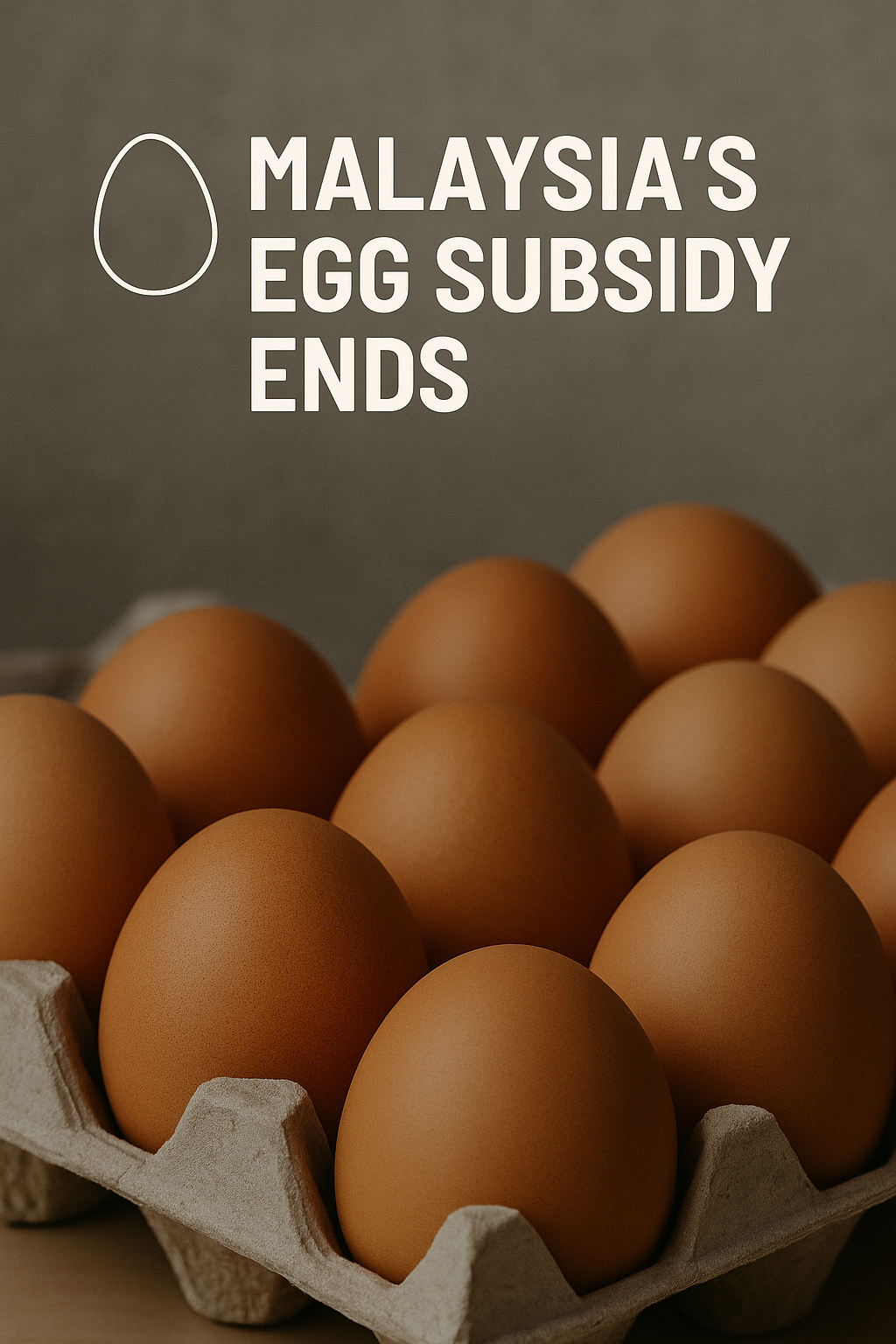Your cart is currently empty!
🥚 Malaysia’s Egg Subsidy Ends: What It Means for You

Published: May 1, 2025
Malaysia is cracking down on subsidies — quite literally. In a major shift announced by the Ministry of Agriculture and Food Security, the government is beginning a phased removal of the chicken egg subsidy, a decision that affects nearly every household in the country.
📉 What’s Changing?
Starting May 1, the egg subsidy drops from RM0.10 to RM0.05 per egg. Come August 1, 2025, the subsidy will be fully removed. Alongside this, the ceiling price for eggs will be lifted, giving producers the freedom to set prices based on market forces.
This marks the end of a COVID-era intervention that has cost the government around RM2.5 billion since 2022. Authorities say the move is timely, as egg production has stabilized and the supply now meets — even exceeds — national demand.
“We’re seeing a healthy, stable supply in the market. There’s no longer a need to distort prices artificially,” said Minister Datuk Seri Mohamad Sabu.
💸 How Will This Affect Prices?
While some consumers fear a sharp spike in egg prices, most analysts and consumer groups expect only a moderate and temporary increase. For instance:
- A typical 5-member household may pay around RM15 more per month.
- Consumer groups warn of potential 20–50% short-term price hikes if sellers take advantage.
- The government promises strict enforcement of price abuse through the AKHAP Act.
To ease the transition, a new “special-grade egg” will be introduced at lower prices. Additionally, affordable eggs will still be available through Agro MADANI and Rahmah outlets nationwide.
🐔 What Do Farmers and Businesses Say?
Interestingly, the poultry industry supports the move. The Federation of Livestock Farmers’ Associations of Malaysia (FLFAM) confirmed it was consulted and believes the market can function well without subsidies.
Stock markets echoed this optimism:
- 🐣 Teo Seng shares rose 5%
- 🐣 Lay Hong climbed 4.7%
Retailers like Mydin are also onboard. “Price controls had discouraged exports,” said Mydin’s Ameer Ali Mydin. “Removing them could encourage farmers to expand production and exports.”
🧾 Why Now?
The decision is part of Prime Minister Anwar Ibrahim’s fiscal reform and subsidy rationalization under the MADANI economic framework. The government argues that blanket subsidies are costly and inefficient, and that funds should be redirected to targeted aid for vulnerable groups.
Still, opposition parties like the MCA have criticized the move, questioning whether it’s too soon given rising living costs.
🧠 Final Thoughts
While Malaysians may pay slightly more for eggs, this policy shift signals a deeper change in how the government handles subsidies. It’s a balancing act between economic realism and social protection. Whether the transition will be smooth depends on vigilant enforcement, responsible business practices, and the resilience of household budgets.
🧾 Quick Summary:
- Subsidy drops to RM0.05/egg from May 1, 2025; ends completely on August 1.
- Price ceilings lifted — market now determines egg prices.
- Govt saved RM2.5B in subsidies since 2022.
- Farmers and retailers support the move.
- Affordable eggs to remain available via MADANI/Rahmah channels.
Leave a Reply